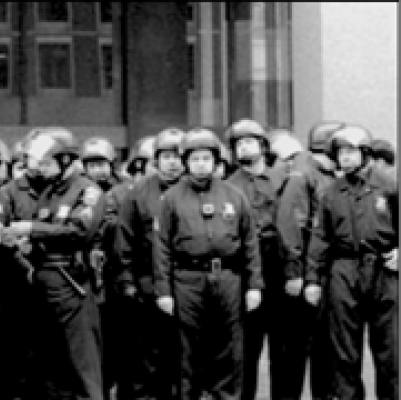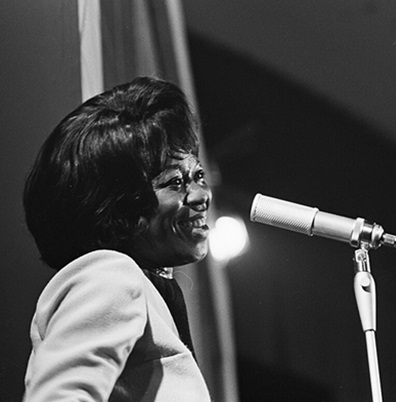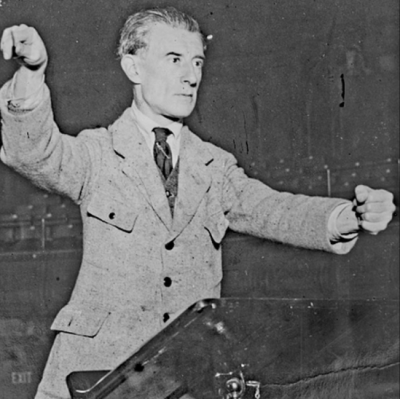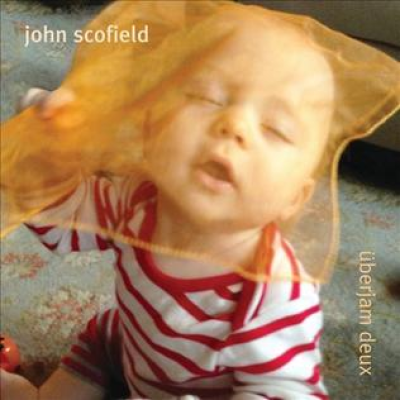“Umbrella: A Play in One Act,” by Emilia Getzinger, was a finalist in our recently concluded 48th Short Fiction Contest. It is published with the permission of the author.
*
Umbrella
A Play in One Act
by Emilia Getzinger
__________
Baltimore, Maryland. 1960. DAVID, a white boy in his late teens, is standing in the rain under an umbrella, waiting for the morning school bus. There is a bench behind him. Enter CLARE, a black girl his age.
CLARE
It’s so cold.
Long pause. DAVID is uncomfortable.
CLARE
Would you mind sharing your umbrella?
DAVID doesn’t answer. After a while, he hands his umbrella to her.
CLARE
Oh no, I didn’t mean— we can share it.
DAVID
Just take it.
CLARE
Are you sure?
DAVID nods.
CLARE
Thanks. I’m Clare. (pause) You just moved here from Madison, right?
DAVID
(softly) Yeah.
CLARE
My cousin lives there. It’s such a nice city. What’s your name?
DAVID
Michael.
CLARE
Nice to finally meet you, Michael.
DAVID
When does the bus get here?
CLARE
(checking watch) Three minutes.
DAVID begins to walk away.
CLARE
Where are you going? Want your umbrella back?
DAVID
Keep it.
CLARE
(bringing him the umbrella) You can’t walk in this. Wait for the bus.
DAVID
(turning away from her) I’m good.
CLARE
School is five miles away.
DAVID
I can walk five miles.
CLARE
Just wait. You have to walk uphill to get to school.
DAVID
I’ll do that.
CLARE
But why not take the bus?
DAVID
Just—
The sound of a bus. DAVID hides behind the bench. After contemplating whether or not she should, CLARE joins him. The bus passes and they come out.
CLARE
Why’d you do that?
DAVID
I don’t know.
CLARE
You don’t wanna be seen with me.
DAVID
No! I just didn’t wanna get on that bus.
CLARE
You wanted to before I got here.
DAVID
I wanted—
CLARE
And now you’re stuck with me. Aren’t you? (begins walking)
DAVID
Where are you going?
CLARE
School.
DAVID
But it’s five miles!
CLARE
You were going to do it. (continues walking, almost offstage)
DAVID
Wait. (CLARE turns) Can I have my umbrella back?
CLARE
(going over to him) Take your stupid umbrella. (SHE hands it to him) Sorry it’s not sanitized.
DAVID
My umbrella isn’t stupid.
CLARE
It has a hole in it! Drops of water keep landing on my forehead. You could use it for Chinese water torture.
DAVID
If it’s so bad then why’d you use it?
CLARE
(indicates rain) Decoration.
Thunder sounds in the distance. CLARE turns away and starts walking to school. After a few steps, she faces DAVID again.
CLARE
Are you coming to school or not?
DAVID
Why do you care?
CLARE
I don’t. But if you get a cold from standing out in the rain, someone’ll find a way to blame me.
SHE begins to walk. DAVID runs up to her.
DAVID
I have an extra jacket in my backpack.
CLARE
And?
DAVID
It doesn’t have a hole in it. If you don’t want the umbrella that’s fine, but you can’t walk to school in just that.
CLARE
If you give me the jacket I’ll have to keep it. You wouldn’t want people knowing you shared it with a black girl.
DAVID
I…
CLARE
Thought so.
DAVID
I’m sorry.
CLARE
For what?
DAVID
Not wanting to be seen with you.
CLARE
A lot of people don’t. If they can help it, anyway.
DAVID
It’s not my fault. My dad’s the problem.
CLARE
Your dad?
DAVID
Yeah. He moved out of Madison since he thought the white schools, you know, were becoming too…
CLARE
Black? (DAVID nods) So he moved here? Baltimore, of all places? (laughing) Couldn’t’ve been more wrong.
DAVID
Yeah.
CLARE
So that’s why you didn’t take the bus with me?
DAVID
That’s why.
CLARE
Your dad was the driver.
DAVID
No—
CLARE
That’s so sweet. A dad who cares so much about his son that he’ll drive his bus—even a bus with black kids on it—just so he can take care of him on the way to school.
DAVID
My dad’s not the bus driver.
CLARE
Oh?
DAVID
He’s a lawyer.
CLARE
Really?
DAVID
Yeah. Harvard Law, class of ‘41.
CLARE
What kind of lawyer is he?
DAVID
General practice. But he’s trying to become a judge.
CLARE
He must know a lot about the decisions of the court system.
DAVID
Oh yeah.
CLARE
Like Brown v. Board of Ed.
DAVID
Well…just because the Supreme Court makes a decision, it doesn’t mean someone has to support it.
CLARE
I completely agree. I feel the same way when I read about Plessy v. Ferguson and Korematsu v. United States…
DAVID
Alright, I get it.
CLARE
Get what?
DAVID
You’re colored. You like laws that favor colored people.
CLARE
I like laws that favor people.
DAVID
Even at the expense of the country?
CLARE
If a law threatens national security, it doesn’t favor people. The people make up the country.
DAVID
Then why are you against the Korematsu v. United States decision?
CLARE
Your last name is Müller. Aren’t you German?
DAVID
How do you know my last name?
CLARE
They put German-Americans into internment camps during World War II. They were prohibited from certain areas. Some were deported. Discrimination in the name of “enemy ancestry.” But you knew that, didn’t you?
DAVID
No, actually.
CLARE
Well, now you do.
DAVID
(pause) Who told you what my last name was?
CLARE
My dad’s a lawyer. He works with your dad.
DAVID
So the bus driver thing…you were faking this whole time.
CLARE
No offense, but you’re pretty stupid for a lawyer’s son.
DAVID
I realized that awhile ago.
CLARE
Maybe you should open up a book once in a while instead of worrying what other people think.
DAVID
Why don’t you worry about what people think?
CLARE
I have too many other things to worry about.
DAVID
Like what?
Lightning strikes in the distance.
CLARE
Lightning.
DAVID
We should probably go to school then.
CLARE
Yeah. You need it, David.
DAVID
How did you know my name was David?
CLARE
Your dad talks about you at work.
DAVID
He does?
CLARE
Yup. And my dad tells me everything.
DAVID
So why’d you ask for my name?
CLARE
I forgot what it was. Didn’t remember until we were behind the bench. Then it hit me—and so did the water from the bus, by the way.
DAVID
(pause) I’m sorry for being embarrassed about you.
CLARE
I’m sorry for calling your umbrella stupid.
DAVID
It’s okay, it kinda is.
CLARE
And I’m sorry for calling you stupid, too.
DAVID
I’m used to it.
CLARE
Really? But you’re not stupid. You’re just a little ignorant, same as everyone else.
DAVID
You mean that?
CLARE
Why would I lie?
DAVID
You lied about the bus situation.
CLARE
So did you.
DAVID
That’s fair. (to himself) What am I doing? Oh! (taking out the jacket and handing it to her) It’s warm.
CLARE
Thanks. (puts it on) Have your umbrella?
DAVID
We can share it.
CLARE
Only if you take the Chinese water torture side.
THEY both stand under the umbrella and exit.
_____
Emilia Getzinger is a playwright, fiction author, and actor. “Umbrella” is her first publication. Acting credits include Grease (Dance Ensemble); Twelfth Night (Valentine); A Tale of Woe, the story of Juliet and Romeo(immersive production based on Sleep No More—Montague Dancer); The Merry Wives of Windsor (Beth, Friend of Anne Page); Fiddler on the Roof (featured ensemble); Hamlet (Gravedigger); Oklahoma!; and Julius Caesar (Ligarius). Backstage credits include Newsies (Assistant Stage Manager); Legally Blonde(Light Board Operator); A Christmas Carol (Assistant to the Director); Joseph… (scenic painter); and Willy Wonka (scenic carpenter).











































